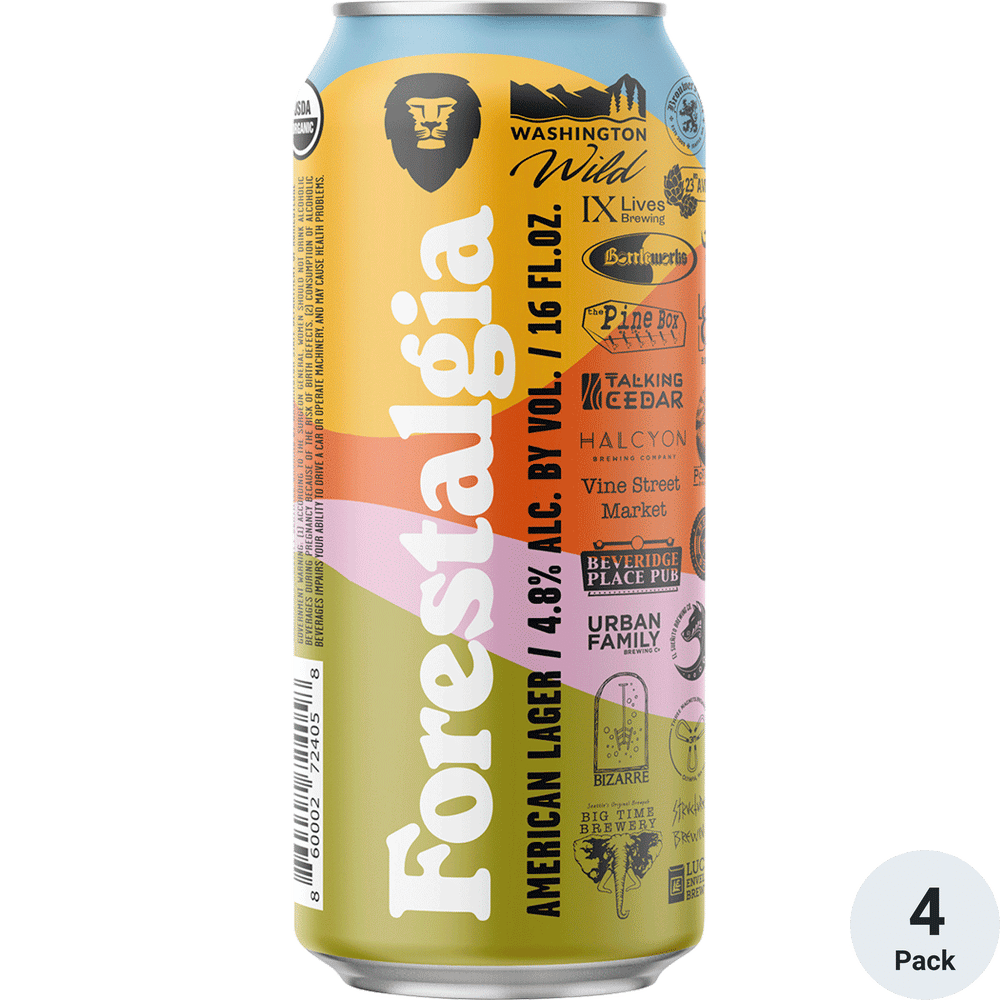So you think you’ve coined a brand-new word, the perfect label for a phenomenon you’ve observed. Don’t break out the champagne — or even the Forestalgia beer — just yet: There’s a better-than-average chance someone else got there first.

Take this week’s WOTW, forestalgia, which figures prominently in travel-trends research reported recently by Washington State University.1 The headline: “WSU study shows travelers are dreaming forward, not looking back.” The summary: “While nostalgia has been widely studied and applied in destination marketing, forestalgia, a term introduced in a 2023 product marketing study, remains relatively underexplored, especially when compared to nostalgia.”
That product-marketing study, published in June 2023 in the Journal of Advertising, had been submitted in January 2021. Its authors, from universities in Mississippi and Virginia, made this assertion:
While the focus for many advertising academics and practitioners has been on nostalgia, there is a dearth of research on future-focused appeals. We introduce a new concept, forestalgia, or a consumer’s yearning for an idealized future.
(Emphasis added.)
I wondered, though: Is it really a new concept? Or a new word?
We can agree on this: Forestalgia is a madeupical word that builds on the older madeupical word nostalgia, which was coined in 1688 by the Swiss scholar Johannes Hofer. Nostalgia’s Greek roots mean “return home” (nóstos) and “pain” (algia2), and the condition it originally described, an agonizing homesickness first observed in soldiers, was considered a serious — even fatal — disease. “One of the early symptoms of nostalgia was an ability to hear voices or see ghosts,” wrote Svetlana Boym in The Future of Nostalgia (2001).
By 1920, however, nostalgia had settled into its present-day sense of a bittersweet yet generally positive longing for a distant place or time. And in the 21st century nostalgia gave birth to a litter of other -algias, including solastalgia (the distress caused by environmental change), fauxstalgia (fake nostalgia), and newstalgia (constructing something new that feels old).
What do these words have in common besides the sense of “longing”? They’re constructed from the meaningless element -stalgia instead of the actual Greek root -algia, meaning “pain.” But our stubborn brains insist on breaking it down otherwise: as no-stalgia instead of the more accurate nost-algia, and as three-syllable fore-stalgia (a longing for something that lies before us) instead of four-syllable forest-algia (which would be … a longing for forests?). This linguistic trick is known as rebracketing; it also gives us burger for hamburger (originally Hamburg-er, “something or someone from Hamburg”) and copter for helicopter (originally helico-pter, from heliko “turning” and pteron “wing”).
I don’t know why we default to -stalgia instead of -algia; it may just feel more natural to English speakers. But I do know that forestalgia wasn’t “a new concept,” or a new word, in 2021. In fact, it has been coined multiple times over the last two decades.
Urban Dictionary has three entries for forestalgia. The top definition was entered in April 2022 by “bobthecopywriter,” who may have read and been influenced by the Journal of Advertising article:
An individual’s yearning for an idealized future. It’s the future-focused counterpart to nostalgia.
But the other two definitions were submitted before the Journal of Advertising publication. Here’s “Li Li Marleaux” on October 16, 2019, giving a different spin on forestalgia:
The feeling of realizing something you fantasized about in the past has become commonplace.
(This seems closer to a definition of déjà vu than forestalgia. Li Li’s example sentence: “I had an overwhelming feeling of forestalgia when I saw the Space-X starship!”)
The entry that surprised me was the third one, from “Razmiga.” It’s dated February 27, 2006:
1. A bittersweet longing for things, persons, or situations to come in the future.
2. To imagine what the future holds.1. While sitting in class Razmig began having forestalgic dreams.
2. James began day dreaming of what the future could hold, he was overtaken by forestalgia.
Except for #2’s problem with parts of speech — if forestalgia can be a verb, the second example sentence doesn’t prove the case — that’s a pretty close match with the “new concept” described fifteen years later in the Journal of Advertising!
How successful is forestalgia as a word? I regret to report: Not very. I went looking for examples of forestalgia in the wild and returned almost emptyhanded. Other than the Washington State beer brand noted above, I found only a couple of attempts at forestalgia branding. One was Forestalgia, a 2022 album by the electronica band XyloBeta (new to me). The other was Forestalgia, a design studio in painfully evident need of professional writing skills:

Have you ever experienced forestalgia? Ever used the word in a sentence? Leave a comment right now, in the present.
Bonus: Read my 2020 story for Medium about nostalgia (gift link).
Thanks to my brother Michael for bringing it to my attention.
It’s the same root we see in analgesic (“taking pain away”).





Feh. I can only read it as forest-algia. It’s not really a #shitmanteau but it’s as bad as one.
I, too, kept reading it as “forest-algia.” Maybe the opposite of forest bathing. 😛
And that design studio bit—ay yi yi!